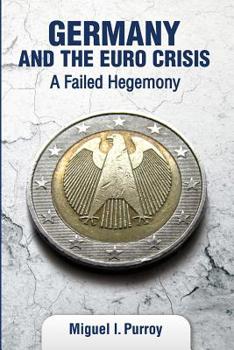Germany and the Euro Crisis: A Failed Hegemony
The eurocrisis thrust a reluctant Germany into the centre of the European stage as a dominant power. Was its conduct for good or for ill? How responsible was its refusal to act as a benevolent hegemon in aggravating the crisis? Looking to the future, is Germany strengthening or destroying the European Monetary Union? Can a union with such divergent economies survive without the solidary fiscal support that Germany is opposed to? Purroy's treatment of these questions is unflinching but balanced, based on a multidisciplinary approach that covers history, politics and economics. The author, although critical of the German position, masterfully explains the reasons behind it.The EU and EMU today are subject to such forces of disintegration that it is preferable to prepare the way for an ordered breakup of the euro rather than risk a chaotic event with unpredictable consequences. It is up to Germany and its peers to take the first step and set out a separate stall, while simultaneously leading the process of unwinding and reshaping an EU that has become ever more invasive, rigid and undemocratic. Can the hegemon rise to the challenge?
Format:Paperback
Language:English
ISBN:179875939X
ISBN13:9781798759394
Release Date:March 2019
Publisher:Independently Published
Length:394 Pages
Weight:1.27 lbs.
Dimensions:0.9" x 6.0" x 9.0"
Customer Reviews
0 rating





